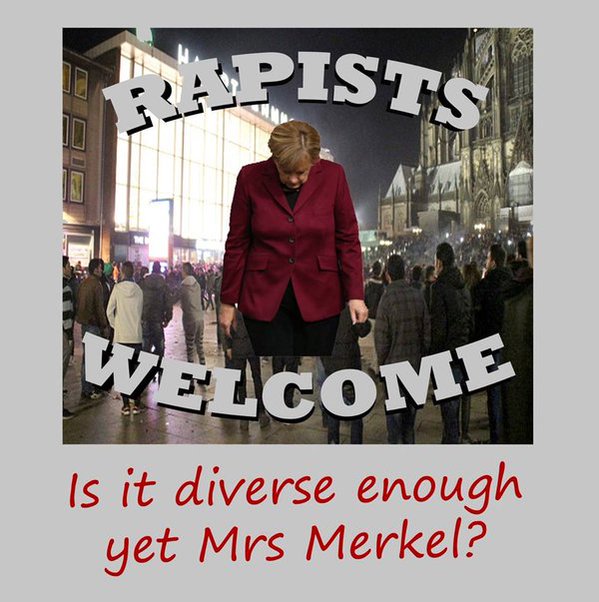Gerry T. Neal
Council of European Canadians
January 13, 2016
In the fall of 1798, a young Samuel Taylor Coleridge, accompanied by his friend and poetic collaborator William Wordsworth, paid a visit to Germany, where he came under the influence of German philosophers and poets such as Immanuel Kant and Friedrich Schiller, which influence he brought back to England with him where he, along with Wordsworth and Robert Southey, launched the Romantic movement in nineteenth century English poetry. On a later visit to Germany, what he brought back with him, was a negative impression of the city of Cologne. In July of 1828 he wrote the following lines which were published a few years later:
In Köhln, a town of monks and bones,
And pavements fang’d with murderous stones
And rags, and hags, and hideous wenches;
I counted two and seventy stenches,
All well defined, and several stinks!
Ye Nymphs that reign o’er sewers and sinks,
The river Rhine, it is well known,
Doth wash your city of Cologne;
But tell me, Nymphs, what power divine
Shall henceforth wash the river Rhine?
One of the things that stands out about this poem today is the irony of this malodorous accusation being leveled against the city whose name has become synonymous with that of perfumes bottled for and marketed to men. The irony may be intentional — the original Eau de Cologne had been around for almost a century by the time the future Lake Poet visited Germany — although it was the city’s extremely poor sewage drainage system that the poet was directly talking about. This may go a long way towards explaining why Johann Maria Farina felt the need to create the famous scent in the first place.
Farina, as you may have surmised from his name, was not German born. An immigrant from Italy, he created the perfume which bolstered the reputation of his adopted city in the very year in which he made Cologne his home. That was 1709. Much has changed, unfortunately, between 1709 and 2015, and as the latter year drew to a close, on the eve of the New Year, a very different class of immigrants introduced a new stench to the city, a stench so strong that it turned the area around the city’s famous Cathedral, housing the Shrine of the Three Kings, into a no-go zone right before Epiphany, the Feast commemorating the Visit of the Magi whose relics are supposedly contained in that shrine.

It is in the city’s central square, located between the railway station and the aforementioned Cathedral, that the inhabitants of Cologne customarily gather together to ring in the New Year. Among those assembled this time around, were large numbers of young, drunken, hooligans, described by their victims as being recent immigrants who were “Arab or North African” in appearance and origin. These threw firecrackers into the crowd to create confusion and then, in the midst of that confusion, isolated young women, surrounded them in large numbers, and groped, robbed, and, in some cases, raped them. The number of victims who have come forward with complaints is now in the hundreds.
Similar happenings, it should be noted, took place in other German cities such as Düsseldorf, Frankfurt, Stuttgart and Hamburg and in other northern European countries such as Austria and Finland.
If the stench of these crimes was not bad enough in itself, to it must be added that of the response on the part of the German civil authorities and the establishment media. I do not mean merely the failure of the Cologne police on the night in question to contain the incidents, capture the perpetrators, protect the public and restore order. These attacks were well organized and the police were overwhelmed. I refer rather to the way in which the authorities, from the Cologne police administration up to the German Chancellor’s office, and the media, made it their highest priority to protect the very foolishness that left German cities vulnerable to this kind of attack in the first place.
A civil war has been underway in Syria since the so-called “Arab Spring” of 2011, in which rebel forces, with heavy foreign support, have sought to overthrow the government of Bashar al-Assad. In the course of the war the eastern part of the country came under the control of the same hard-core Islamic groups that had seized power in western Iraq, creating what is now known as ISIS or ISIL, the Islamic State that has declared itself to be the restored and revived caliphate. Since the war began a large number of Syrians have fled, whether from ISIS, Assad, or just the destruction of the war itself, to such neighboring countries as Jordan, Lebanon, and Turkey.
A little over a year ago another phenomenon began to attract attention as thousands of people had begun pouring into Europe through Turkey claiming to be refugees from the Syrian conflict. This flood shows no signs of abating and has grown to the millions, the overwhelming majority of whom are young Muslim men of military age, and of whom only a minority are actually from Syria. It was obvious to those who had eyes to see that this horde of young men, who showed a great deal of disregard for the law, customs, and authorities of the countries they were entering, were not a genuine wave of refugees seeking asylum from threats to life and limb at home, but an invasion.
German Chancellor Angela Merkel, however, chose instead to accept the deceitful media narrative about a crisis of humanity and some moral obligation we supposedly have to open our hearts and borders to those who at the time were striving to endear themselves to the countries they wished to enter by swarming over fences, chanting obscenities, and hurling rocks and bottles at the police. She declared that Germany would take in any Syrian refugee who wanted to come — by the end of the year, a million had taken her up on that offer — and began pressuring other European governments to do the same.
Merkel is now calling for Germany to implement new laws which would make it easier to deport asylum-seekers who commit crimes but has not acknowledged that her effort to win a reputation for compassion at the expense of her country and people was, to put it mildly, mistaken. Indeed, the Cologne police and the German federal government initially denied, what they have now been forced to admit, that those who committed this wave of sexual assaults and robberies were mostly newcomers to Germany, from the Middle East, who entered as asylum-claimants and they continue to be more concerned that those on the right who oppose open borders and mass immigration will gain support because of incidents like these than they are for the well-being of their countrymen, or in this case, countrywomen. The German media, which did not seriously report on these events until the eve of Epiphany, five days later, seems to share this attitude, the stink of which is greater than any of the two and seventy, noted by Coleridge in the nineteenth century, and which would require a sea of Eau de Cologne to drown it out.


